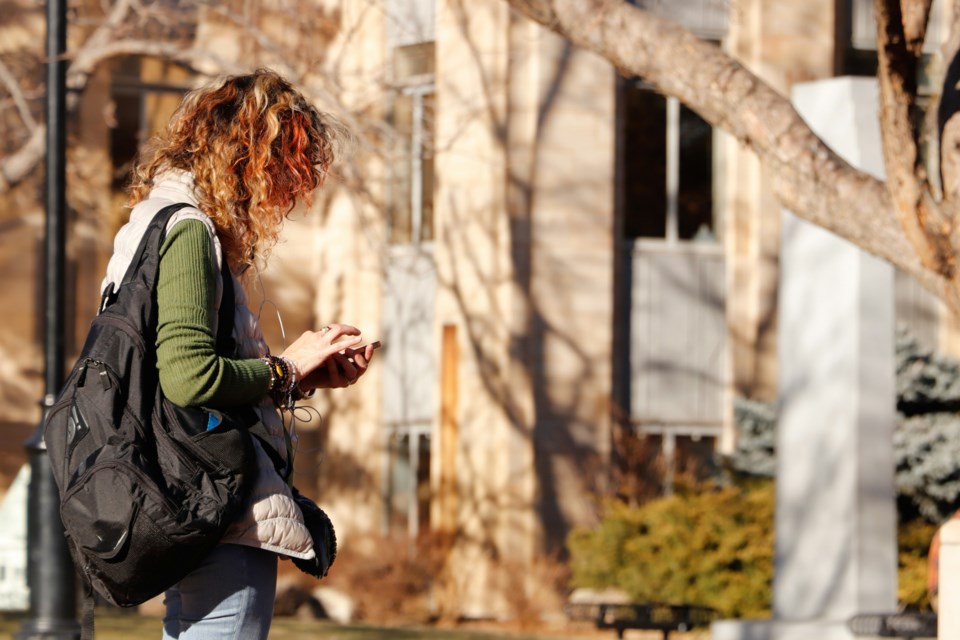Barrhead is ahead of the curve on a new provincial policy on use of personal mobile devices in schools, according to local officials.
Minister of Education Demetrios Nicolaides recently announced on June 17 that for next year students will no longer be permitted to use personal mobile devices during class time and social media will be restricted.
“I am quite impressed the way they have set it up,” said Brett Cooper, superintendent for Pembina Hills School Division.
The Barrhead High School handbook states that it is the current policy to not allow mobile devices use during instructional time and the policy has been in place for the last two years.
“Our current policy is that we don’t want students using their tech devices during instructional time," said Slade Sekulich, Barrhead High School principal.
For Barrhead High School, that means they don’t want students wandering around and on their phones when they should be learning, explained Sekulich.
Students can use their devices during their breaks between classes and lunchtime. If a student has a spare period, they should be in the student common area and can use their phones.
Students are asked to keep their phones off and store their phones in their lockers or backpacks during class.
Sekulich said that next year the school will encourage students keep their phones in their lockers to make it a bit easier to avoid the distraction during the forbidden times.
The school is seeing benefits are that there is a lot more time spent on doing work in class and less time for teachers to manage and re-direct students back on task.
There is a 1 to 1 ratio of Chromebooks for students to use in the classroom to do research and work, eliminating the need for students to rely on their own technology to do work.
There are students who work well during assignments while listening to music and that can be done with the Chromebook.
Music is a recommended strategy for some students to calm anxieties.
Medical exemptions have been historically recognized and exceptions are made.
In a student body of 730 students that comes down to a dozen students, said Sekulich.
Diabetes monitoring would be an exception and would allow a student to have their cell phone on them with specific guidelines to not abuse their mobile device access.
“At first, students didn’t like it,” said Sekulich, “There is a very strong addiction to having that device in hand.”
The first months of the first year of implementation were rocky and there were several violations where consequences were assigned.
This year there were far less infractions and in the last month Sekulich has seen three incidents where phones were sent to the office to be picked up by parents.
The policy states that on the third infraction parents would have to meet with administration before the phone is returned.
Sekulich explained that the procedure had been run through school council and parents had the opportunity to revise, suggest and approve specifics before implementation.
Overall parent reactions heard by the school in the beginning were mixed, said Sekulich. This year parents are supportive, for the most part, though some parents find the policy inconvenient and don’t like it.
Other parents have voiced concerns about the devices being their personal property and that the school should not confiscate their personal property.
Sekulich clarified that personal property that is damaging to yourself or others in the context of the school policies, it should not be brought to the school.
“I think it has been overall very positive for the learning environment,” said Sekulich.
As per the Education Act students are to remove or not to introduce distractions from the classroom.
Sekulich has been working in schools for 30 years and has seen the interruption of cell phones increasing as there are few students without a cell phone now.
Educating students on how to stay on track and avoid distractions has been part of the school’s focus.
Sekulich agrees with the social media restrictions.
He said he has been told by students that they have experienced cyber-bullying or have had people say mean things about them online, which has been difficult to police.



